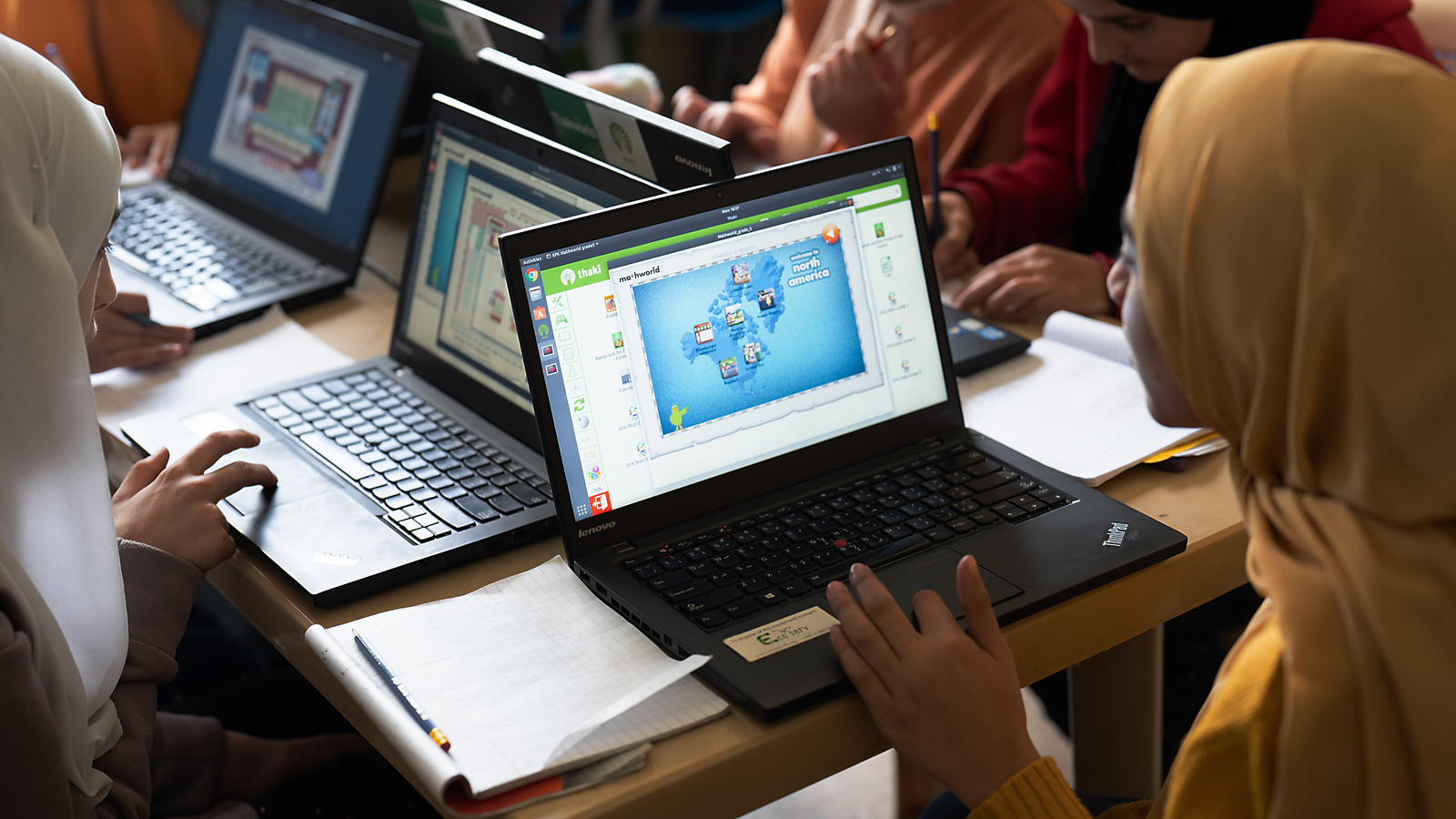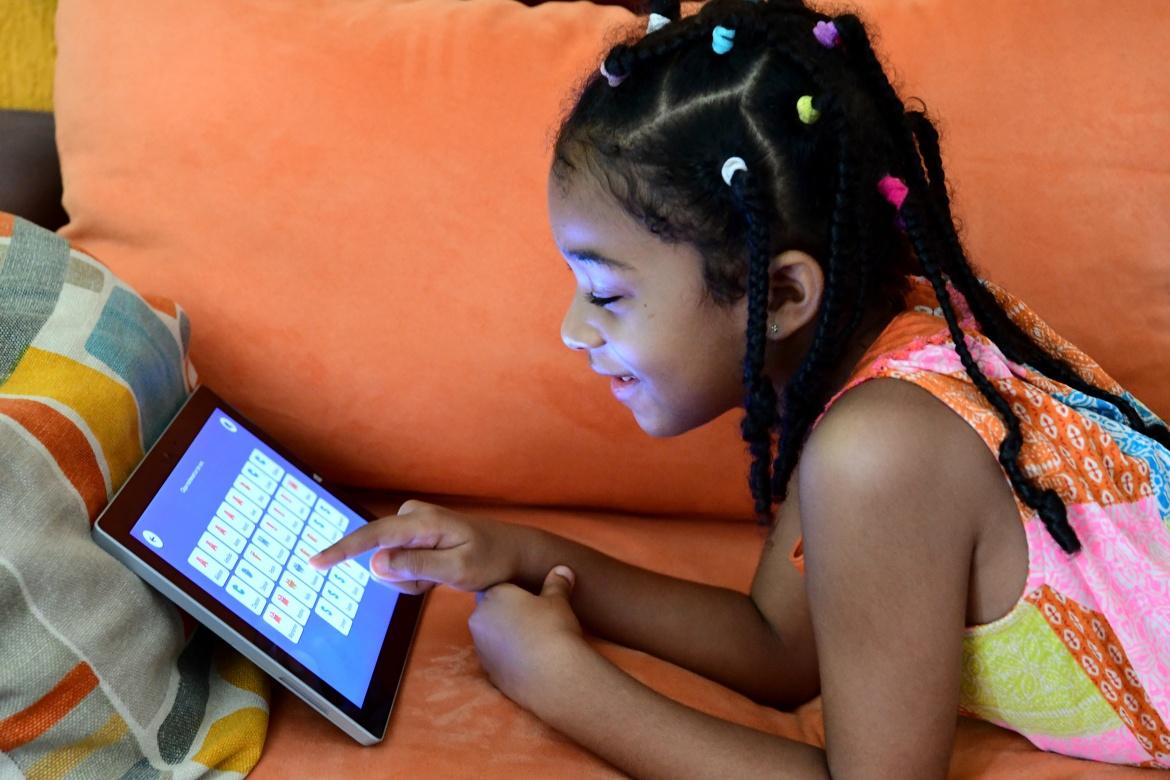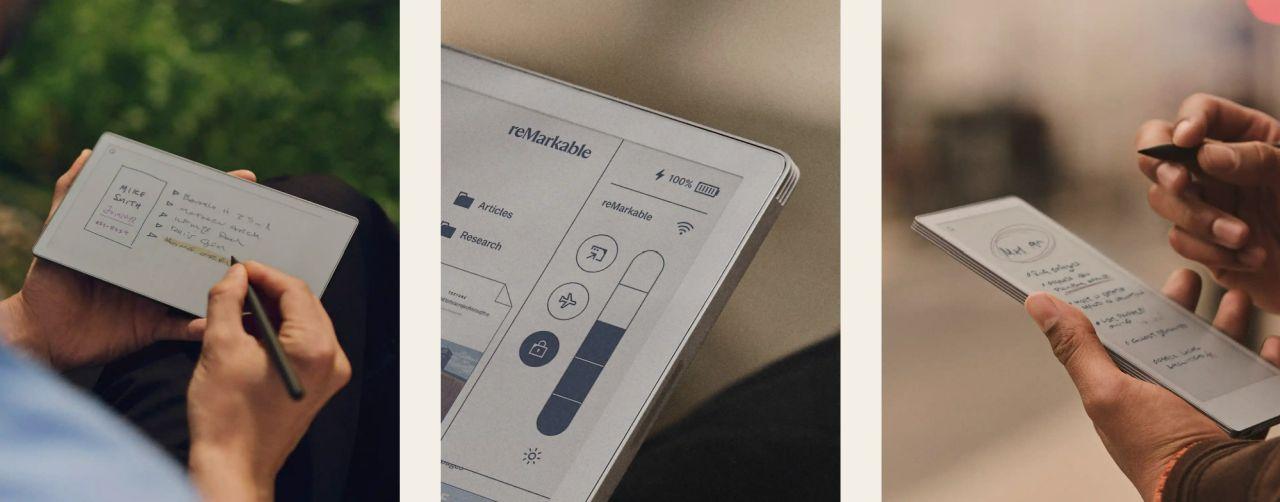 (1)-responsive.jpg)
Three Tech Products Helping Individuals with Visual Impairment
Over two billion individuals are impacted by visual impairment worldwide and while mitigation isn't a possibility for everyone, accessible resources could be. We sat down with three Solver teams–GNYPWD (2023 Learning Solution), Kibo (2022 Learning Solution), and Vinsighte (2022 SolvED solution)–who have developed unique hardware and software solutions to help the visually impaired community.
The Birth of Kibo, Vinsighte and GNYPWD
Kibo’s inception is traced back to the college projects of its co-founders—where Akshita Sachdeva was focusing on a smart glove for visually impaired individuals, and Bonny Dave on creating a refreshable Braille display. Their encounter at an incubation center marked a turning point. Seeing how their projects affected visually impaired lives inspired a common goal. Together, they shifted from engineers to entrepreneurs, committed to inclusive education and employment for the visually impaired.
Similarly, the genesis of Vinsighte can be traced back to the founders' time in medical school, where they observed firsthand the struggles of visually impaired students. Recognizing the limitations in accessing educational resources, Olarinde Olokuntoye and Kolawole Tomi used their backgrounds in engineering and expertise in medicine to make education more accessible for the visually impaired, eventually leading to the launch of Vinsighte App. This smart app called Visis assists in reading books conveniently by converting texts to audio output for the visually impaired user to listen to. The app also aids visually impaired persons detect objects and scenes around them and navigate their environment independently.
Whereas, growing up in Delhi, Kartik Sawhney’s passion for science clashed with the systemic barriers restricting blind students from pursuing sciences due to misguided assumptions. This discrimination led Sawhney to advocate for change and spearhead campaigns, which led to institutional change. No matter where policies did end up changing, Sawhney was learning that there was a larger issue—the lack of resources and role models in an ecosystem not designed for people with disabilities. Sawhney expanded his advocacy beyond education, addressing accessibility challenges in public transportation and advocating for the use of technology to break systemic barriers.
At Stanford, he delved into the potential of technology, realizing its power to scale impact and dismantle obstacles faced by people with disabilities. This realization laid the foundation for the Global Network of Young Persons with Disabilities (GNYPWD)—a platform providing young people with disabilities an easy-to-use natural language search where they can learn from resources and enhance access to opportunities to advocate for their rights.
Innovative products bridging accessibility gaps
We found that across these initiatives, technology plays a pivotal role. From Accessible Connect's AI-driven community building to Vinsighte's app empowering education in Nigeria, and Kibo's AI-powered multi-language solutions, technology has become the cornerstone of accessibility. Each initiative innovates in diverse ways, addressing barriers faced by the visually impaired in education, navigation, and content access.
Kibo, which stands for Knowledge in a Box, is an AI-powered patented technology designed to listen, translate, audio-tize, and digitize content across 60 global languages, with a primary focus on underserved Asian, African, and Indian languages. The suite of Kibo products includes a web-based SaaS platform that scans and makes PDFs more accessible through audio-tization, a talking table lamp that can read to users with real-time translations and a mobile app offering on-the-go audio-based access to various content.
Catering to the unique linguistic needs of diverse regions has been a primary focus for Kibo. Hence, with a presence in about 30 countries like US, UK, Cambodia, Laos, Thailand, Myanmar, and the Middle East through distributors; not only is there a commitment to a language-inclusive approach but also focus on user-centric development. Visually impaired individuals actively participate in the team for accessibility testing and user data validation and with the collaboration of local partners and distributors, Kibo ensures that the machine learning models have accurate translations and relevance in diverse cultural and linguistic contexts.
Vinsighte's flagship product, the Visis app is designed for visually impaired individuals aged 11 to 35 and supports users in reading books and navigating their surroundings independently. Through the use of smartphones, the app captures text in front of users, converting it into audio for an enriched and inclusive learning experience. Visis has been integrated in over seven schools across Nigeria, catering to over 7000, visually impaired persons and fostering a more inclusive educational environment for them. Users have reported significant improvements in accessing course materials, covering printed materials that were once inaccessible. Moreover, the app has proven instrumental in enhancing reading speed and comprehension, alleviating the frustration often associated with traditional learning methods.
By leveraging AI and technology, GNYPWD’s platform Accessible Connect is providing accessible educational materials, simplifying information, and connecting individuals with opportunities. Currently, the community comprises 600+ members from 80+ countries, collectively impacting over half a million lives.
What sets GNYPWD apart is its approach to development. It's not just about creating features for specific disabilities; it's about adhering to the highest accessibility standards and ensuring inclusivity for all. Sawhney emphasizes, “The organization's decisions are deeply rooted in lived experiences, embracing intersectionality and diversity within the disability community.”
Pricing strategies and inclusivity initiatives
“Pricing is a delicate balance between the functionality that the product offers and the segment that it caters,” notes Sachdeva. Keeping in mind the diverse needs of students, educators, organizations, and nonprofits, Kibo constantly ensures that their products are affordable– its mobile application is $2 a month and the Kibo desk is about $4. Additionally, it also has subsidies and partnerships with NGOs like the Voice of specially abled people in the US to make it more affordable for students coming from low-income backgrounds.
Vinsighte actively seeks feedback from users, employing a comprehensive approach to monitoring and evaluation. Regular engagement with schools involves sharing questionnaires to gauge usability, ease of navigation, and the overall impact on users' lives. By involving teachers, guidance counselors, and students in this process, Vinsighte ensures that the app remains a valuable and user-friendly tool.
Facing challenges and embracing the future
Contrary to common challenges faced by tech-based solutions, Vinsighte sees artificial intelligence (AI) as an enabler rather than a barrier. The openness and advancements in AI, especially with initiatives like OpenAI, have accelerated Vinsighte's progress. Olokuntoye acknowledges challenges in user training and scaling but emphasizes that AI has played a pivotal role in improving their product and, ultimately, the lives of visually impaired individuals. They currently partner with organizations such as Co-creation Hub Nigeria, ACT foundation, Nigeria, and hope to expand partnerships globally.
GNYPWD's initiatives aren't confined by geographical boundaries; they're tackling global issues, partnering with entities like the UN and the World Bank and engaging in innovation challenges focused on sexual and reproductive rights, education, and humanitarian crises.
Additionally, Sachdeva sees obstacles as opportunities for growth for Kibo. She’s optimistic about riding the wave of AI advancements and staying at the forefront of technology–winning the 2023 TiE Women Global Pitch Competition in Singapore is proof of that. But the global need for their solution constantly brings the challenge of scaling deeper and further finding the right partners and team members to propel Kibo's mission.
Beyond the technological strides, all three solutions echo a profound truth–true societal progress comes from embracing diversity and respecting individuals for their unique contributions. Vinsighte, GNYPWD, and Kibo envision a world where differences are celebrated, where inclusion isn't a notion to strive for but a fundamental aspect of existence.
Are you interested in supporting learning and accessibility technology? Learn about ways to support Solver teams here.
Tags:
- Learning
Related articles
-
“Education is the one thing you can take with you.” A Q&A with Rudayna Abdo, Founder and CEO, Thaki

-
A LEAP in evidence-based innovation for education
How to address the need for evidence-based innovation in education by empowering researchers, social entrepreneurs and education organizations to work together.
-
Powered by Purpose: E Ink’s ePaper Technology Takes Aim at the World’s Toughest Problems
Because it draws power only when an image changes—and none at all while static—ePaper reduces energy consumption by orders of magnitude. That single breakthrough unlocks net-zero transit signs, off-grid medical notebooks, and other applications that traditional screens simply can’t power sustainably.